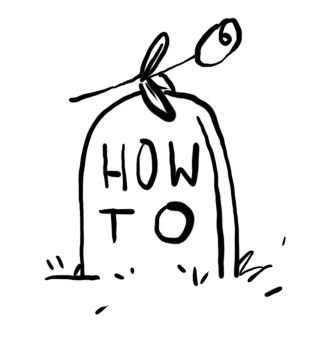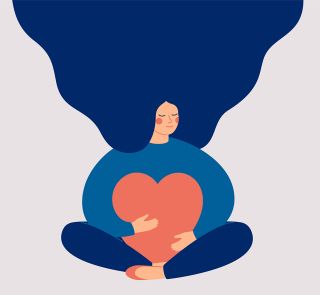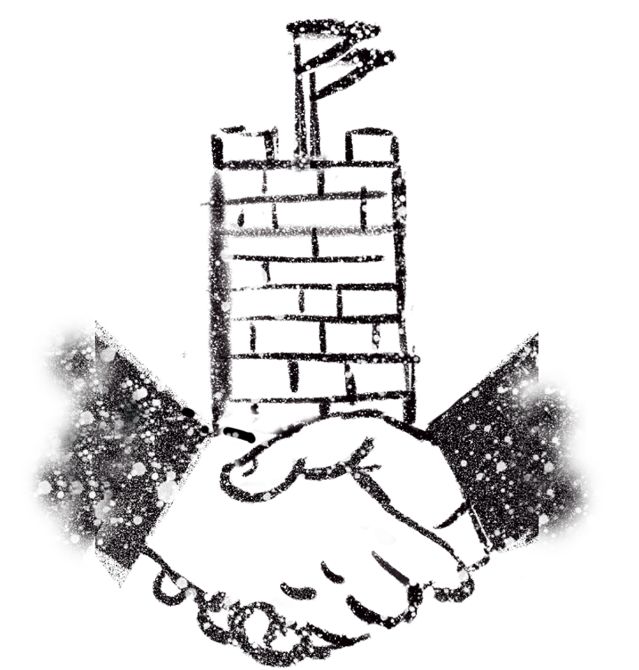21 Rules to Live By
4. Casual kindness is the most powerful kind.
By Psychology Today Contributors published March 7, 2023 - last reviewed on April 6, 2023

You have only one lifelong companion.
The relationship we have with ourselves is our single most important relationship, as we are lifelong companions to ourselves. Starting early in development with our parental, family, and peer relationships, self-attachment underlies personal health and wellness, professional development and satisfaction, and the quality of our relationships with others. By cultivating this relationship with self-compassion, curiosity, and the joy of perpetual learning, we can best accompany ourselves through all of life’s seasons.
— Grant H. Brenner, M.D.
Mattering matters.
Mattering consists of feeling valued, by self and others; and adding value, to self and others. The more you associate with people who make you feel valued, and who add value to your life, the happier and healthier you’ll be. The best relationships are based on mutual mattering. Think about how you can make the other person feel seen, appreciated, and recognized. Convey to the other person what you need to feel valued. The more you nurture relationships based on fairness and worthiness, the greater your wellness will be.
— Isaac Prilleltensky, Ph.D.

Grief allows growth.
Few people ever speak positively about grief, and many of us want to avoid having to grieve. However, without grief, we have no ability to integrate a significant loss into our lives. When we are not able to grieve, we often become paralyzed, immobilized, or stuck. It is through grief that we relearn how to navigate the world and make new choices that reshape our lives no matter what has happened to us. Learning how to grieve, and giving oneself permission to grieve a significant loss, is a central component of post-traumatic growth.
— Mark Shelvock, RP(Q), MACP
Casual kindness is the most powerful kind.
People underestimate how much others appreciate a random act of kindness, whether it’s sending a gratitude letter to a former teacher or texting a friend to say you’re thinking of them. These small gestures cost us little—in time or money—but bring joy to the recipients, which in turn strengthens our relationships and improves our own psychological and physical well-being. Perhaps most important, empirical research demonstrates that such kindness is contagious—and more kindness in the world is good for us all.
— Catherine A. Sanderson, Ph.D.

When lost, summon a sherpa.
When life knocks you down and you’re a jumble of pain, doubt, and programming, uncertain of your next healthy step, try getting advice from the wisdom you carry within. Picture a relevant personal hero—a parent, coach, teacher, friend, sibling, spiritual leader—and go behind that person’s eyes looking back at you. Tell her or him what’s going on in just a few sentences and then allow your chosen guide to say just one key thing you need to hear about how to live with yourself in a new and more effective way. Then do it.
— Steven C. Hayes, Ph.D.
You are judgmental; wield it well.
It is counterproductive and delusional to think we can be nonjudgmental. The human mind is relentlessly critical. Every interaction generates an affect—positive or negative—in which some opinion is embedded. Since our judgment is ever-active, a priority should be to ensure it is sensitive, nuanced, and open to new information. Better judgments about ourselves and others, whether positive or negative, aid communication, empathy, and social cohesion.
— Terri Apter, Ph.D.
Find the cure in curiosity.
Allow yourself to feel what you feel. Instead of pushing it away, let yourself become curious about it. What happened that led to it? Is this a pattern in this type of situation? Healing is a wave; it ebbs and flows. Allow yourself to be part of the wave of healing instead of trying to make it go away.
—Kaytlyn Gillis, LCSW

Support a defense to dismantle a defense.
I’ve found that compassionately understanding and supporting a client’s self-protective defenses paradoxically makes them feel that those defenses are less necessary. Such defenses—mostly involving avoidance and dissociation—began as adaptive strategies to combat caretakers’ conditional acceptance of them, to feel more secure in the family constellation. Justifying the adaptive strategies has a healing influence.
—Leon Seltzer, Ph.D.
Don’t be afraid to be anxious.
Anxiety propels us to run and seek safety or to act and face expectations. It gets our attention. But the worst stress lies in the spiral of anxiety about anxiety. Too much hurts and paralyzes. But the quickest route to that state lies in the belief that something is wrong with you because you’re anxious. When anxiety collapses on itself and leaves you feeling like the problem, remember it’s simply energy in the tank—Mother Nature’s fuel for acting on actual problems out there in the world.
—Craig Katz, M.D.
There’s a way to look back to move forward.
Think back on all of the challenges you’ve faced, how you’ve overcome them and made it this far. List your past accomplishments and achievements— both professional and personal. Thinking about how much you’ve been able to do in the past can remind you how much you’re capable of doing in the future.
—Jacob M. Appel, M.D.,MPH
Sometimes the problems you have aren’t yours.
It is unproductive to focus on “fixing” individuals while perpetuating the societal structures and cultural beliefs that sustain injustices and inequalities. The more we recognize the many ways that societal values and structures promote and normalize inequalities—based on class, race, gender, sexuality, and more—the more motivated we are to resist becoming who society wants us to be.
—Onnie Rogers, Ph.D.

Find the magic in parenting.
When parents choose to have a child, they are agreeing to have an adolescent. Separating from childhood and parents, the young person begins detaching for more freedom of independence and differentiating for more freedom of individuality. Parents usually encounter more resistance to their own wants and must learn to tolerate greater diversity of youthful expression. As these changes gradually pull their kids away, parents may miss the enchanting childhood years. However, now they get to behold their little girl grow into a young woman and their little boy grow into a young man. What is more magical than that?
—Carl Pickhardt, Ph.D.
Catch your thoughts before they catch you.
Our feelings are often fueled by our automatic thoughts and reactions to situations, but we can harness those same thoughts to make our lives better. For example, we sometimes think a person’s actions are due to their personality when they may be due to a situation they found themselves in. We may think we are to blame for a negative outcome when in fact we are not. Catching and reframing maladaptive thoughts can be life-changing.
—Regan Gurung, Ph.D.
Number your days to live life fully.
The practice of memento mori, acting on the Latin phrase that translates to “remember we must die,” has the profound potential to wake us up and breathe more life into our lives. While focusing on the end of our days may sound more morbid than meaningful, the contemplation of death allows us to appreciate the scarcity of the very time we’re looking to make the most of. We get roughly 4,000 weeks to live. Consciously calculating how many weeks we have left, research shows, can motivate us to live squander-free lives. Get counting— and living!
—Jodi Wellman, M.A.

There’s no such thing as unrequited love.
Unrequited love seems ubiquitous: Many report falling in love with someone who did not reciprocate their affection. In most of these cases, however, we fall in love with a fiction. We project onto the object of romantic interest various traits and qualities that the other does not have. Sometimes we run into that person several years later and discover that they are not at all the person we thought and not someone we’d want to be with. In such cases, there is no unrequited love, since the person we were attracted to, being a fiction of our own imaginations, did not reject us, and the real person, who did reject us, was not the person we fell in love with.
— Iskra Fileva, Ph.D.
Banish negative feelings by engaging them.
When nothing is done, nothing is left undone. —Lao Tzu These words are a paradox, and like most paradoxes they’re absolutely true. When negative emotions hit—particularly sadness, fear, and shame—we want to move out of them quickly. All types of coping strategies come on line—some good, some bad, like overthinking, addiction, busyness, overspending, overworking. When we can stay with the feeling and give full expression to it (i.e., nothing is done to avoid it), we actually have a chance to move through the feeling more completely (i.e., nothing is left undone), and new awareness can emerge.
—Jennifer Lock Oman, LISW
Sometimes doing less is doing more.
When I was a counselor trainee, my supervisor advised, “Don’t do more for your clients than they are willing to do for themselves.” It struck me, at first, as cold and cynical. After all, clients come to us in need. Yet I quickly learned that the more you do for others, the more they underfunction. When people begin to act on their own behalf, whether it’s job-hunting, calling to make a therapy appointment, or starting an exercise program, they begin the bold process of change. And the beginning is often the most challenging part.
—Gina Simmons, Ph.D.
One question can get you unstuck.
Continually rehearsing a narrative of how you have been wronged by others discourages you from taking responsibility for your own actions. Yet it can feel rewarding as it invites sympathy, attention, and exemption from responsibilities and blame. Ask yourself: What am I gaining from my own victimhood? The negative experiences you’ve faced deserve to be acknowledged and processed. But in order not to remain stuck, angry, depressed, or unfulfilled, you must move out of a victimhood mindset. Much of (productive) therapy entails supporting clients in this process.
—Katherine Schreiber Cullen, LCSW
We cause distress by avoiding distress.
Our natural inclination is to avoid pain. Yet, life entails tolerating it. The more you evade pain, the more difficult tolerating it—that is, living—becomes. Most psychological distress is caused by attempts to escape psychological distress. Instead, we must learn to face what we are inclined to dodge. We cling to destructive habits for fear that not doing so will cause greater destruction. Once we identify a harmful, ineffective behavior, we should ask: What does this behavior allow me to avoid? In discovering what a dysfunctional habit lets us escape, we discover what we must face in order to heal.
—Noam Shpancer, Ph.D.
It’s a life’s work to be honest with ourselves.
Confronting our own self-deception is the key to developing sustained psychological health. Although it can be difficult to look in the mirror in a raw, unedited way—remembering painful experiences, admitting past behaviors you’re ashamed of, examining unflattering motivations—seeing the truth gives you the freedom to change, to make choices consistent with the life you want to live. Becoming more honest with ourselves is our ultimate life journey.
—Courtney Warren, Ph.D.
Focusing on work can sometimes help at home.
Patients often come in wanting to discuss problems in relationships. I sometimes suggest turning attention to the office. Patients who are overbearing and narcissistic, for example, may have so alienated their spouses that progress in the marriage is difficult. Officemates may notice even minor progress. Often, the workplace is a good venue for practicing skills that can then be used at home.
—Peter D. Kramer, M.D.
Submit your response to this story to letters@psychologytoday.com.
Pick up a copy of Psychology Today on newsstands now or subscribe to read the rest of this issue.
Facebook/LinkedIn image: mimagephotography/Shutterstock
